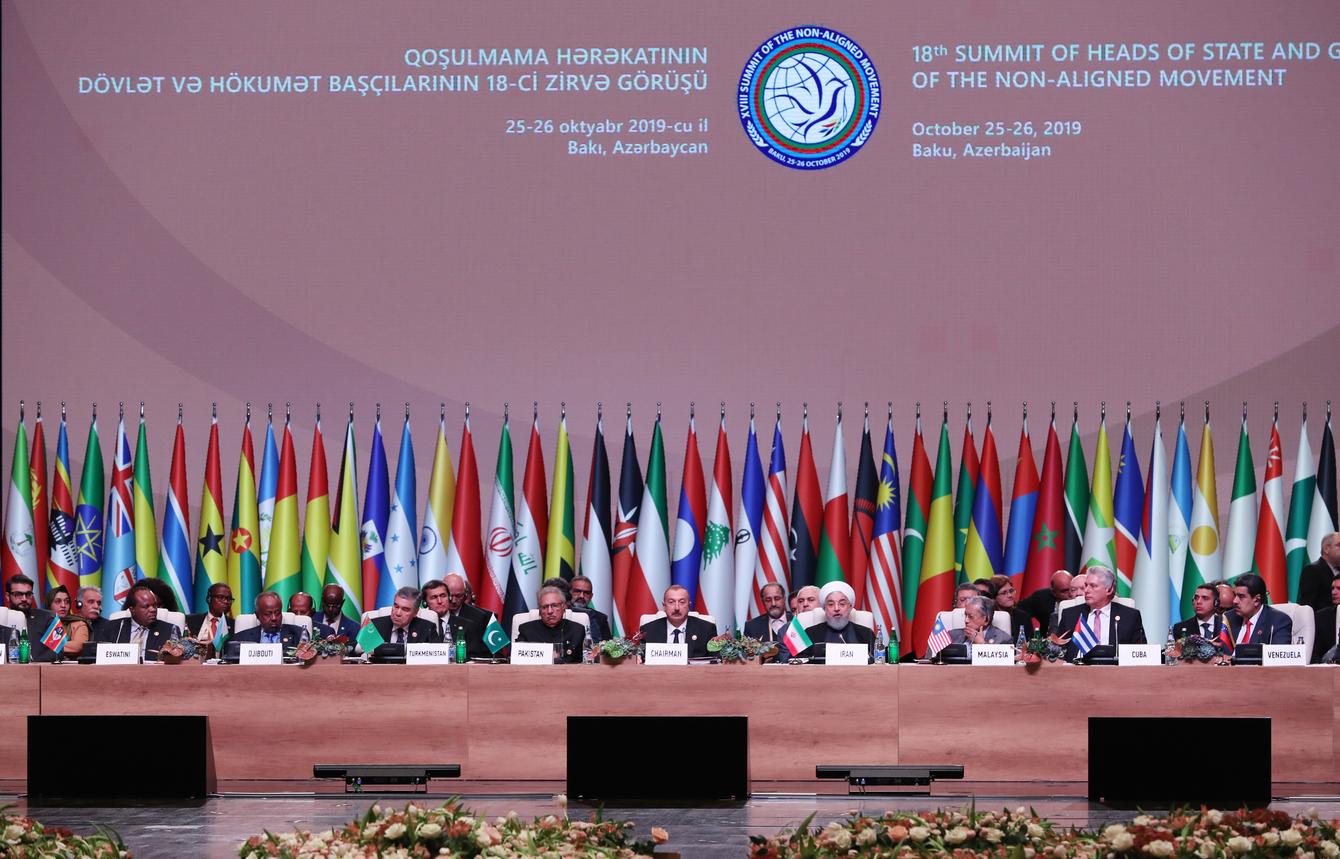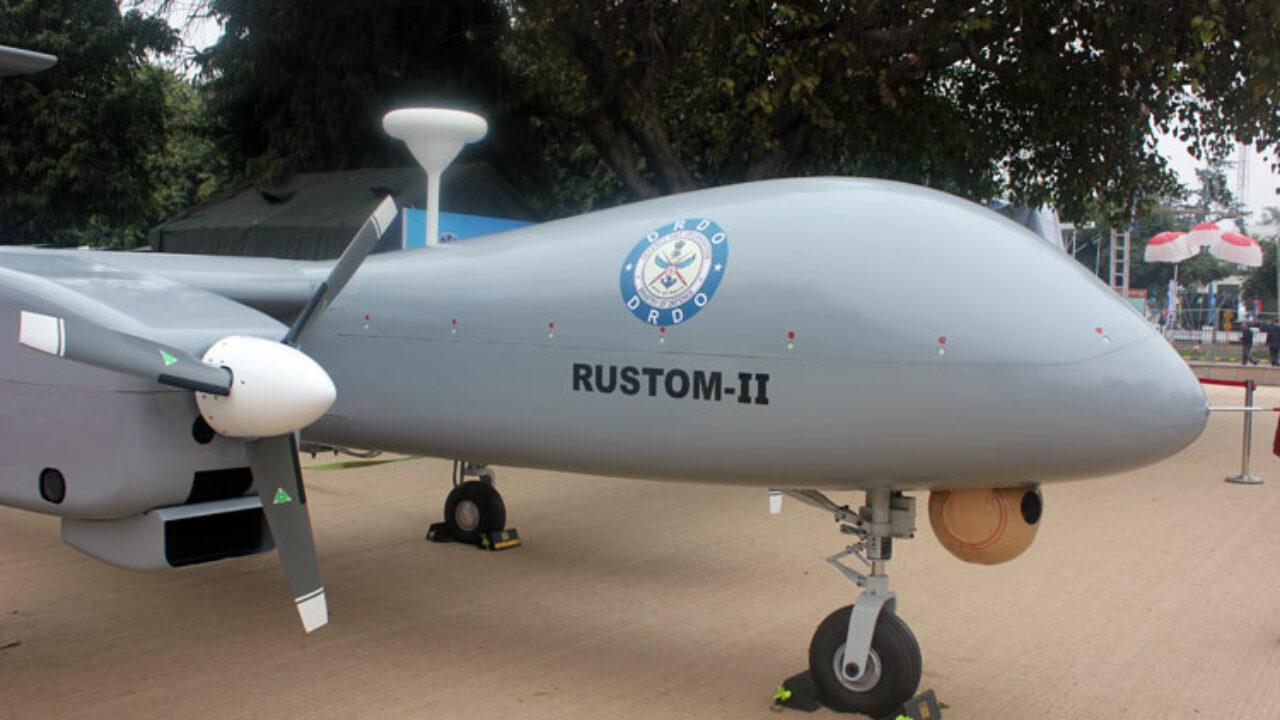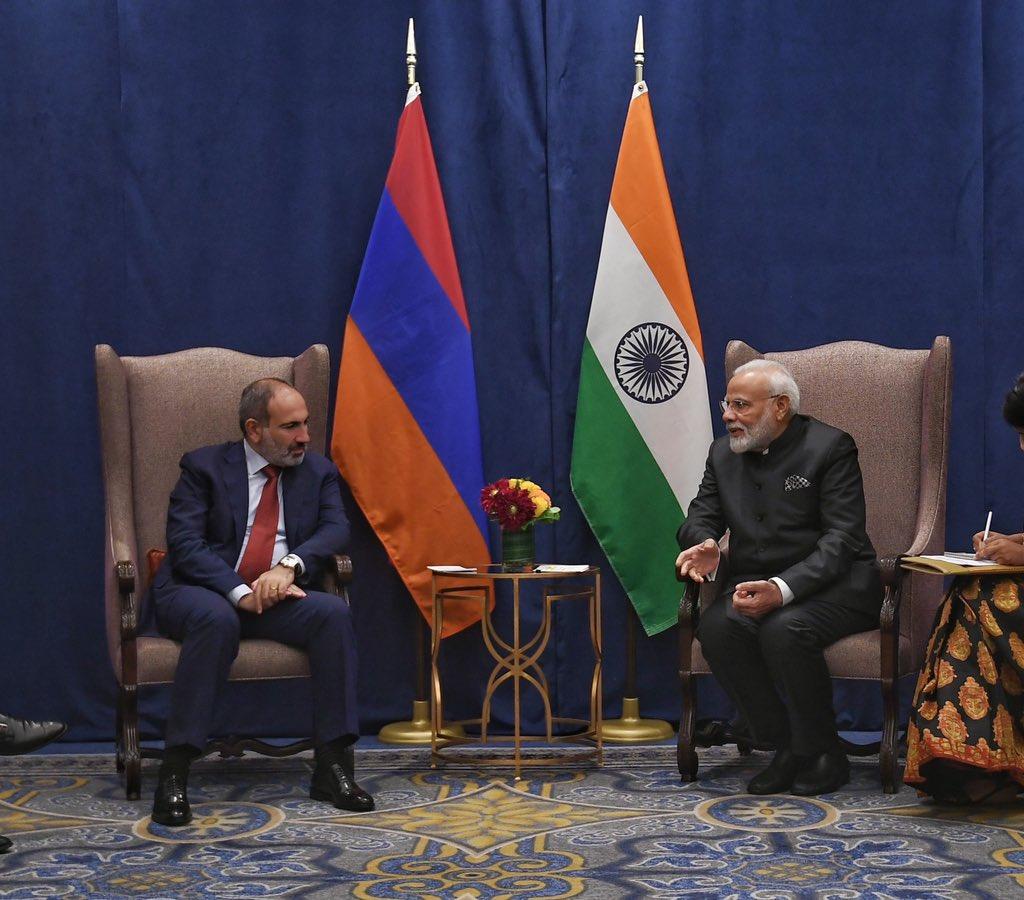India: a clandestine Azerbaijan enmity hidden behind a fake smile New Delhi fails to choose between “loser” & “winner”
India and Azerbaijan have been maintaining good friendly relations for many years. Although located quite far from each other in the greater Eurasia region, Baku and New Delhi are involved in an active and growing business, energy, and trade relations.
For instance, in 2021, bilateral trade between the two reached almost $740 million. However, from January to June of this year, the same trade turnover amounted to $895 million, which is 21.1 per cent more than in the same period last year.
"At present, India is the fourth-largest export market for Azerbaijan," said Vinay Kumar, representative of the Indian Embassy in Azerbaijan.
Meanwhile, India purchased over 275.4 thousand tons of oil from Azerbaijan in January-April this year, including 138.45 thousand tons in April. For April indicators, Azerbaijan came in at number 17 among the foreign oil suppliers to India.
“Dark side of the Moon”
Many could think that such a smooth trade relationship should be a pivot for bolstering the ties in politics. However, the authorities in India have been demonstrating the “dark side of the Moon” when it comes to diplomatic relationships with Azerbaijan.
India has been boasting as one of the founders of the Non-Aligned Movement (NAM), the world’s second-largest international organization after the United Nations, which India’s former Prime Minister Jawaharlal Nehru touted as international cooperation in line with generally recognized norms of relations between states. Formed during the height of the Cold War, NAM is an alliance of 120 countries in nearly all regions of the world. Member states account for a population of 4.3 billion people. Its primary goal is to foster global peace, safety, and development based on respect for international law.
In October 2019, Azerbaijan took over the chairmanship of NAM from Venezuela on a rotating basis - a position that the country will hold until 2023 upon the request of the member states. Azerbaijan has made great contributions to the institutional development of this structure, as well as to address various challenges facing it. For instance, since the outbreak of the COVID-19 pandemic in 2019, which coincided with the chairmanship of Azerbaijan, the country’s authorities have rendered humanitarian support to 80 countries, including the partners in NAM, and donated $10 million to the World Health Organization, half of which was assigned to NAM countries.

Despite Azerbaijan’s non-stop contributions to cementing NAM’s pillars with the firm support of member countries, India was following down a quite different path – to hide behind a fake smile and clandestinely stab Azerbaijan in the back. One crystal-clear fact to expose New Delhi’s attempts to hit Azerbaijan below the belt was its reaction to the invitation to Azerbaijan to attend a BRICS summit as a guest. BRICS includes Brazil, Russia, India, China and South Africa, which represent the interests of three and a half billion people, slightly less than half of the world population. Moscow, Beijing, Pretoria, and Brasilia voiced a positive tone about seeing Azerbaijan at the summit, but New Delhi unexpectedly opposed it.
In the meantime, the Youth Summit of NAM was held on July 25-29 in Azerbaijan for the first time in the 61-year history of the institution. As part of the summit, a Youth Organization was created to bring the youth of the member countries of NAM under the same roof. The creation of the new non-political structure gained unanimous support from the representatives of the member states participating in the event. But India again tried to prevent the signing of the final document through its representatives, who, unlike delegations of other NAM member states, were professional diplomats.
The next destructive behaviour of India against Azerbaijan popped up amidst the attack of the religious radicals on the Azerbaijani embassy in the United Kingdom. NAM member states were preparing a declaration to voice solidarity with Azerbaijan over the incident and to condemn it. However, India and its “puppet” ally Bhutan thwarted the signing of the document.
Second Karabakh War and arming Armenia
The 44-day war between Armenia and Azerbaijan in the latter’s Karabakh region two years ago has also helped expose the behind-the-scene attitude of the Indian authorities toward Azerbaijan. India has openly armed Armenia during the war. New Delhi agreed to supply four locally produced Swathi radars to Armenia as part of the defence agreement worth $40 million signed in 2020.
The Azerbaijani authorities have advocated attempts to achieve durable peace and stability in South Caucasus post-war. Baku has been delivering on its commitments by preparing basic conditions that would help normalize relations with Yerevan through mutual recognition of territorial integrities and demarcation of state borders; restoring regional communications, coordinating the roles of allies and partners, including Türkiye and Russia in the regional developments and more.
However, the Modi administration is seemingly unwilling to stop arming Armenia even in the period that opened up ample opportunities to help the region usher in an all-new era free of conflicts and wars. The Armenian media has recently trumpeted the purchase of weapons from India, including drones. In June, a defence delegation from Armenia travelled to India to see what on their “shopping list” could be purchased from Modi’s government. Yerevan and New Delhi were said to shake hands for the supplies of Indian armed drones. According to Indian media speculations, the talk was about Rustom-ll (Warrior-2) uncrewed aerial vehicles (UAV) produced by the Defence Research & Development Organization (DRDO) research institute in India.

Analysts are convinced that New Delhi’s attempts to arm Armenia are a counterweight to Pakistan’s interests in the region, which supports Azerbaijan and has serious regional disputes with India. Modi’s government is also said trying to militarize Armenia for putting a stick in Azerbaijan’s closest ally Türkiye’s growing influence in the region. Worth to note that, Ankara has been calling for the normalization of ties with Armenia after the 2020 war with Azerbaijan, including even the opening of borders with Yerevan. President Recep Tayyip Erdogan attached a special representative for the relevant negotiations with the Armenian authorities.
Preferring loser to the winner
In a nutshell, India is said to benefit Armenia’s current situation characterized by regional isolation, strapped cash, lack of investments, and a weak economy. Modi’s government hope to use the so-called strategic geopolitical location of Armenia sandwiched between Russia, Iran, and Türkiye. New Delhi wants to use Armenia for reaching the Black Sea ports on the alleged Armenian North-South Transport Corridor, which has only its name seen on the documents.

But the international practice has repeatedly proven that favouring Armenia as a project partner is nothing but shooting yourself in the foot. Since 2009, the poor country was not able to afford $3.5 billion for constructing a railway with Iran. Moreover, since 2020, it has been failing to lay a 10-kilometre highway, a portion of the 32-kilometre road, of which 22 kilometres have already been built and commenced by Azerbaijan. The new highway should open a new connection link between Armenia and the partial ethnic Armenian population living in the territory of Azerbaijan. Moreover, according to Azerbaijan’s President Aliyev, the Armenian people asked Baku to build also a 4-kilometre unpaved road stretching toward the Armenia-Azerbaijan border in the territory of Armenia, which will be used for comes-and-goes to the Azerbaijani territory until Yerevan puts the 10-kilometre route in operation in the spring of 2023.
In this case, India, quite obviously, has chosen the wrong course by distancing itself from Azerbaijan, which plays a growing role in international politics and trade platforms thanks to its ambitious projects, including the Southern Gas Corridor, the Baku-Tbilisi-Kars Railway, as well as forms a vital part in transcontinental projects such as Belt and Road Initiative, the Trans-Caspian International Trade Route, and the East-West and North-South International Corridors. New Delhi should better understand that only close cooperation with Baku and Ankara, not with “loser” Armenia, could transfer its ideas for Caspian and Black Seas into action. The sooner India understands it the faster it will be able to normalize relations with Azerbaijan. Because the time flies without obeying anyone's desire ...








